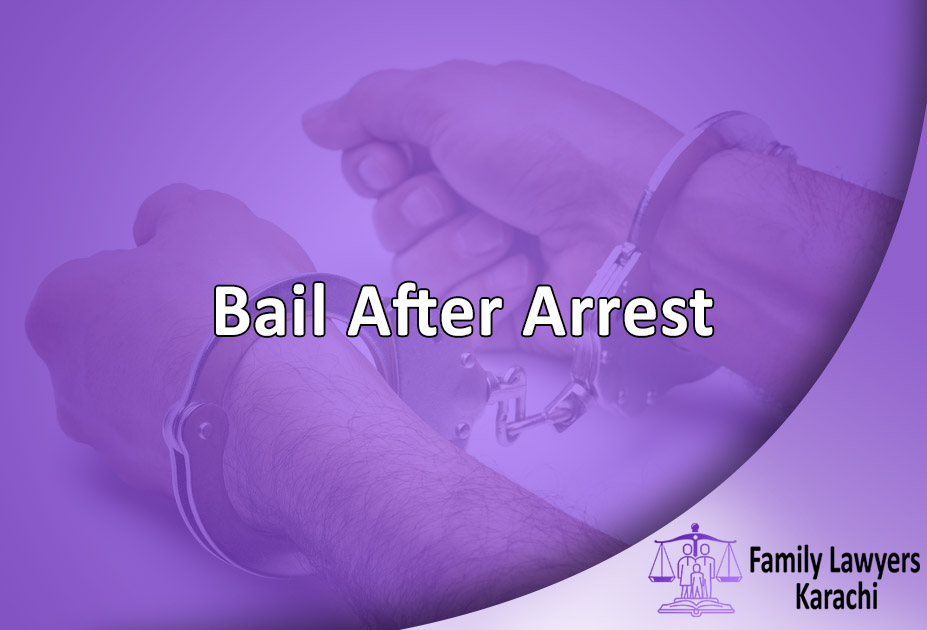Criminal Law
Bail After Arrest

How to get Bail after Arrest?
Bail is granted to the person accused of a crime. It can be granted after his arrest for both bailable and non-bailable offence.
When the person accused of a crime is arrested under law. The courts see no necessity of detention of the accused in the jail by the law enforcing agencies. Jail time before any decision by the court can cause damage to the accused’s dignity, honour or reputation.
This damage can be irreparable. Considering this problematic situation the trial court’s grant the accused post arrest bail.
Conditions for bail after arrest:
The accused should meet the following conditions:
1. The person accused should make himself present for interrogation by the police officer whenever he is required to.
2. The accused person should not make any inducement, threat or promise to any person acquainted. The accused should not dissuade anyone from disclosing facts of the case to the court or police.
3. The accused person shall remain within the country until the case is over. A prior permission should be taken from the court to leave the country
4. The accused person needs to submit the surety bonds for the satisfaction of the court till the case is disposed of completely.
There are certain important factors of the Post Arrest Bail:
i. Prohibitory Clause
The law states under section 497 of the Criminal Procedure Code that a post arrest bail cannot be filed when there is clear evidence that the accused is guilty of the crime committed. The crime committed by the accused is punishable with death, life time imprisonment or imprisonment for ten years.
The pre-condition for confirming of post arrest bail is that the alleged offence should not be under section 497 prohibitory clause of the Criminal Procedure Code.
ii. No Reasonable Ground for Commission of Non-bailable offence
Another factor for pre-condition for confirmation of post-arrest bail is that the accused should be free from non-bailable offence. There should be no reasonable grounds accusing him of committing a non bailable criminal act.
iii. Sufficient grounds for further Inquiry
For getting a post-arrest bail the accused should have enough grounds for further inquiry into the guilt of the accused.
iv. Bail Bond
Post-arrest bail can be confirmed only if the accused is willing to submit a bail bond. The bail bond should be submitted in a prescribed manner following the Criminal Procedure Code.
How to apply:
The accused can file a petition in the court if he meets the above criteria.
FAQS:
Q. Can the accused travel abroad when on bail?
No. The courts do not allow the accused to leave the country when the case is still active. The accused can ask for permission from the court and if granted, he can travel abroad.
Q. Where can I stay when on bail?
The accused is bailed to an address and is required to stay at that address.
Q. Can the accused continue to work when on bail?
Yes. The accused can continue their work on bail.
